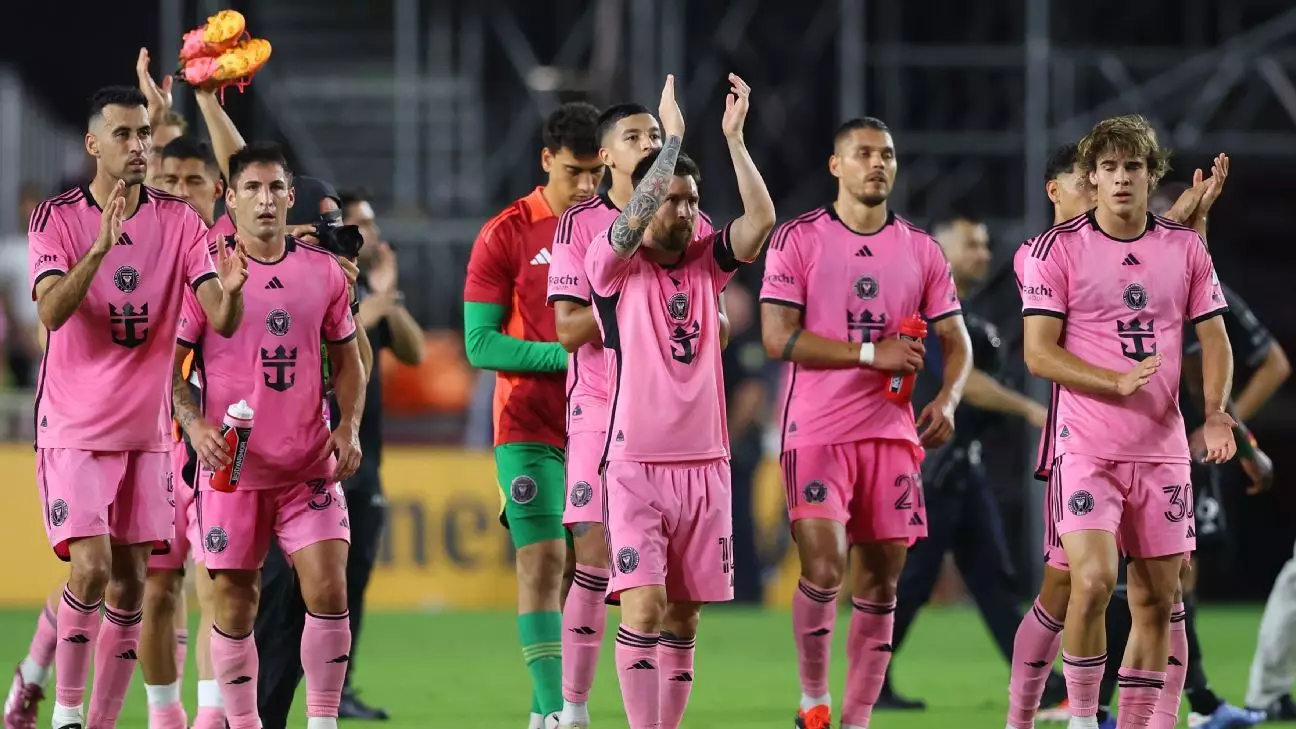In the realm of sports, few players have the ability to single-handedly shift the dynamics of a team the way Lionel Messi has for Inter Miami. From languishing as a bottom-table squad in Major League Soccer (MLS) to achieving historic milestones, Messi’s impact on the franchise has been nothing short of revolutionary. This article explores the transformative effect of Messi’s leadership on Inter Miami and how he has redefined what it means to be a champion in this evolving sports narrative.
Messi officially joined Inter Miami on July 15, 2023, and the announcement was more than just a moment of excitement; it signified a paradigm shift within the organization. His presence ignited a spark not only among the players but also within the entire club culture. Goalkeeper Drake Callender recalls the transformative energy that swept through the team from the moment Messi’s signing was announced. The players felt an immediate sense of responsibility to elevate their performance, driven by the imminent arrival of a soccer legend. It was a cultural pivot—a realization that Inter Miami could not just be a participant in MLS but a credible competitor for championships.
Messi’s leadership style is grounded in humility and perseverance. He does not rely on loud speeches or overt displays of authority; rather, he inspires through his relentless pursuit of excellence on the field. This unique style resonates especially well with younger players who are eager to learn from an icon. Messi’s approach effectively underscores the idea that actions often speak louder than words, setting a standard that teammates aspire to reach.
Once Messi arrived in Fort Lauderdale, the dynamics in training shifted dramatically. Sessions became more intense, as even routine drills morphed into competitions that pushed players beyond their perceived limits. Callender described how a simple rondo exercise became an engaging test of skill and agility, elevating the team’s overall intensity. Messi’s influence was palpable; his commitment to training activated a mentality shift among his teammates, demanding a new level of diligence and professionalism from everyone.
The psychological impact extend beyond mere practice; it infiltrated the players’ mindset. Callender mentions the psychological edge that comes with saving shots from one of the best to ever play the game. This confidence translates into their performances in high-stakes matches, offering a tactical edge over opponents. The emphasis on rigorous preparation has built a cohesive unit that believes in its ability to compete against any team.
While Messi’s statistics—20 goals and 16 assists in 19 matches—are indeed impressive, it is crucial to acknowledge the collaborative efforts of the entire team that have complemented his brilliance. Young talents like Benjamin Cremaschi, who transitioned from a reserve player to an influential midfielder, have stepped up significantly since Messi’s arrival. Their conversations around tactics and positioning have stemmed from a unique mentor-mentee relationship, allowing Cremaschi and others to flourish under Messi’s guidance.
This mentorship embodies the essence of what it means to be part of a team. The emphasis on communication, whether through verbal instructions or non-verbal cues, showcases the evolution of their game. Cremaschi’s improvement in statistical metrics, such as achieving an 88.8% pass accuracy, is indicative of this growth, reflecting the broader influence of Messi’s leadership on individual performances.
As Inter Miami pursued victories in both the Leagues Cup and the Supporters’ Shield, it became increasingly evident that Messi was central to reshaping the identity of the franchise. Under Guardiola’s guidance, the club recorded a staggering 74 points in a single season—setting a new league record. The exhilarating blend of seasoned professionals like Sergio Busquets and young emerging stars contributed to a team synergy that turned Inter Miami into a formidable contender.
However, the narrative of Inter Miami is not solely reliant on Messi’s contributions on the pitch. Even in his absence due to injuries, the team maintained its competitive edge, demonstrating resilience and depth. Players like David Ruiz and Federico Redondo rose to the occasion, reinforcing the notion that success is a collective endeavor. The club continues to thrive, motivated by Messi’s relentless drive, even when he isn’t on the field.
The ultimate question remains: will the Messi gamble pay off with an MLS Cup victory? As the stakes rise in future matches, the lessons learned from the last season’s triumphs will become more critical. Will the influx of youthful vigor combined with seasoned leadership be enough to secure the coveted championship?
Inter Miami’s evolution under Messi is a testament to the power of mentorship, community, and shared ambition. It highlights how a single player can elevate not only a team’s performance but also its spirit, ethos, and trajectory. The Messi effect underscores the importance of leadership that fosters growth, implying that true greatness lies not just in individual accolades but in the uplifting of an entire organization. The future promises to be as vibrant and intense as the season that has just concluded, and one can only wonder how high the Herons can soar with Messi at the helm.

